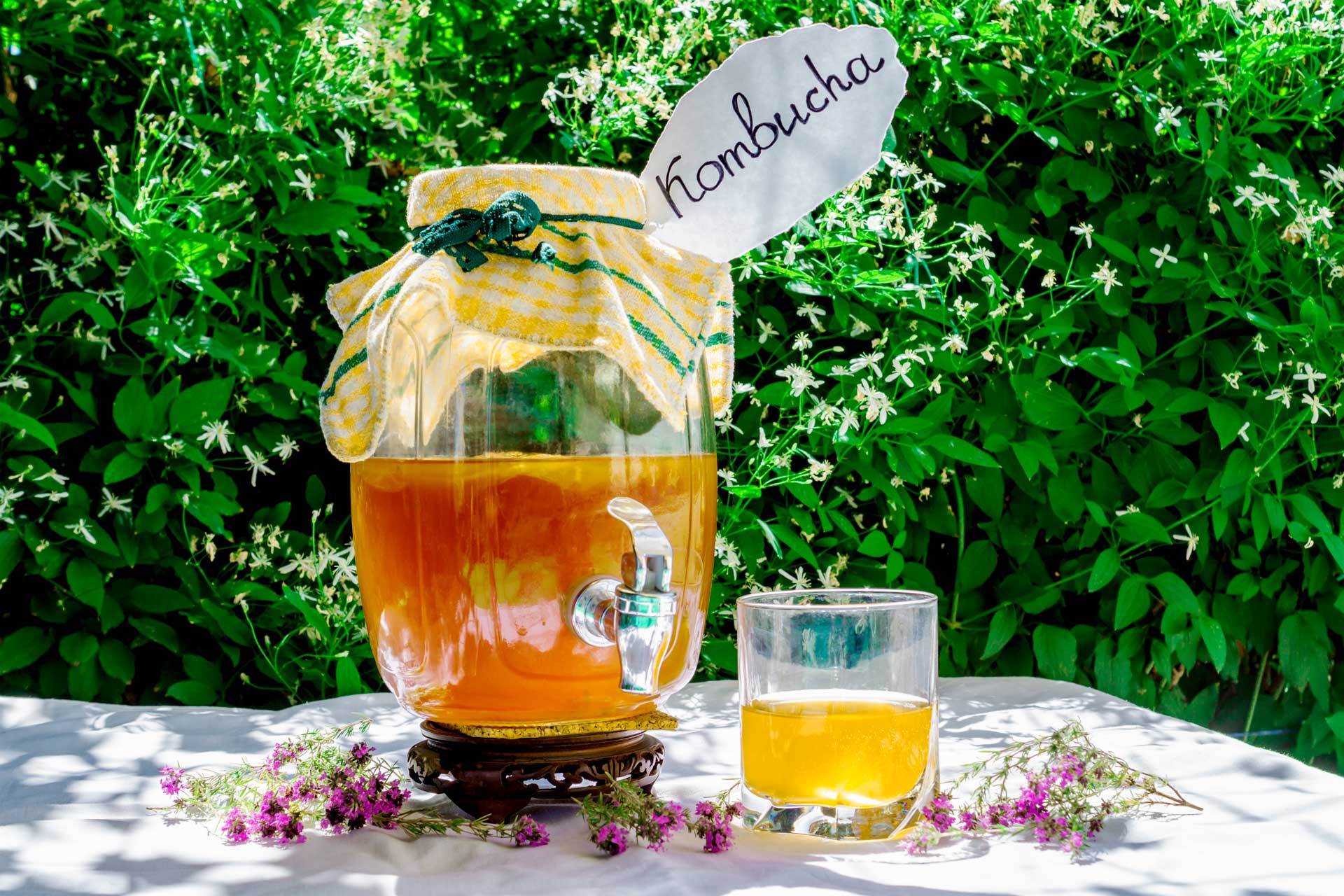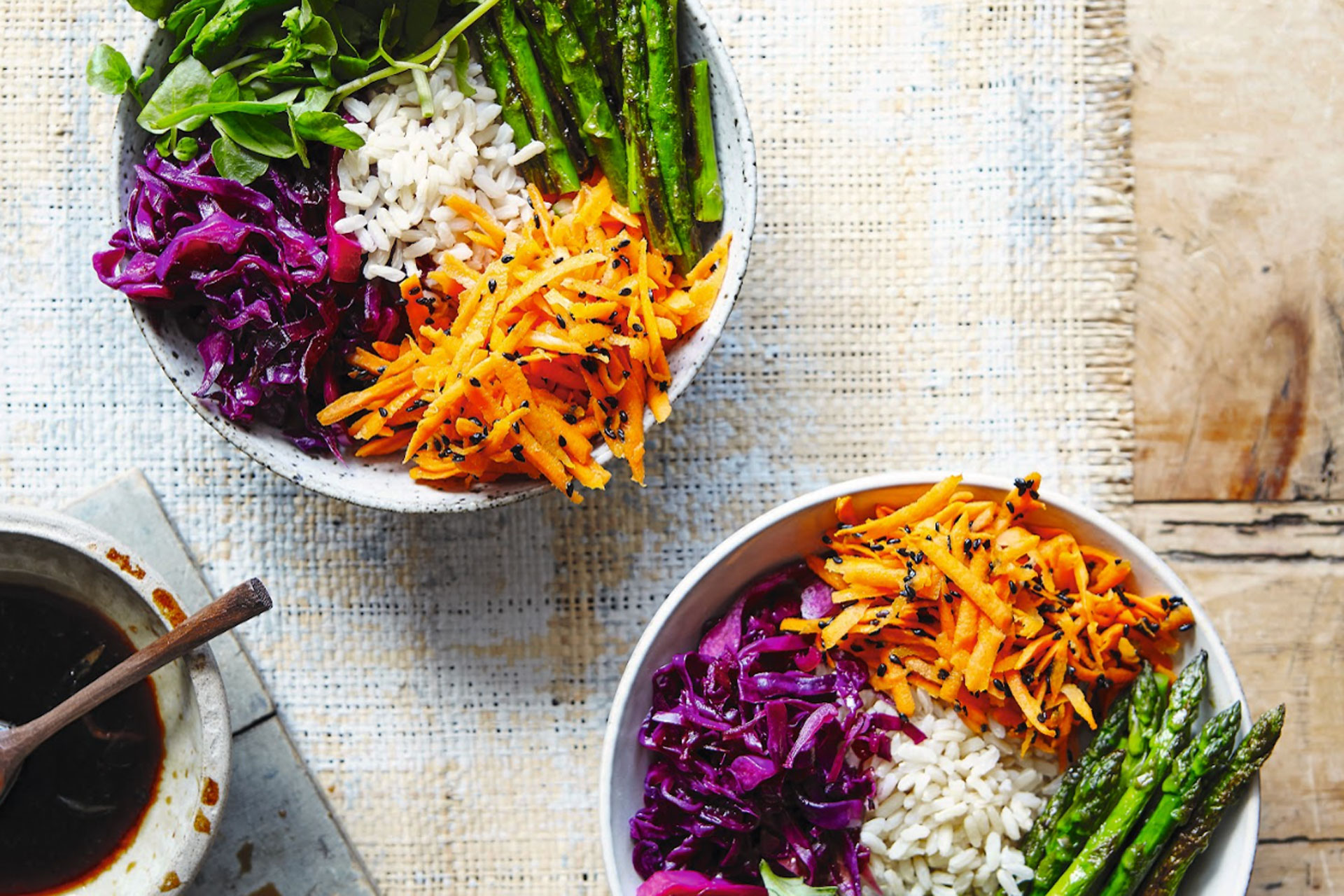
Probiotics vs Prebiotics: What’s The Difference?
By
5 months ago
An expert demystifies the trending health topic
As the importance of gut health becomes increasingly clear, there’s more talk than ever about probiotics and prebiotics. But what do these terms actually mean? What’s the difference? And can we get enough from food? Nora Cavani, CEO and co-founder of Alba Health, a company specialising in gut microbiome testing and preventative healthcare, answers all our questions below.
What’s The Difference Between Probiotics & Prebiotics?
First and foremost, Cavani is keen to highlight that probiotics and prebiotics are not only found in supplements, although that’s often how we hear about them. Many foods contain both, and not everyone will need to supplement their intake (more on that below).
And although there’s just one letter difference, probiotics and prebiotics have different functions. ‘Think of probiotics as the beneficial bacteria themselves – they’re the “good guys” you’re adding to your gut,’ explains Cavani. ‘Prebiotics, on the other hand, are the food that feeds these beneficial bacteria. It’s a bit like gardening – probiotics are like planting new flowers, and prebiotics are the fertiliser that helps them flourish.’
So both are beneficial to the body – but should we be prioritising our intake of one? ‘You need both for a thriving gut ecosystem, but prebiotics are often more important because they feed the beneficial bacteria you already have,’ Cavani says.

Getty Images
Why Are They Important?
Both have a significant role in supporting our gut health, which impacts everything from skin to brain function to digestion.
‘Probiotics help support the balance of your gut microbiome, particularly after disruptions like illness, stress, or antibiotic use,’ says Cavani. ‘We all naturally have a mix of “good” and “bad” bacteria, and probiotics can help keep that balance in check.They can help crowd out harmful bacteria and support immune function. Contrary to what people usually think, probiotics do not usually colonise the gut in adults, they are extra help to the gut but they do not stay. In children, probiotics remain in the gut for a longer period of time because a child’s gut microbiome is simpler and less developed.’
According to Cavani, prebiotics are arguably even more crucial, as they ensure the beneficial bacteria is able to thrive long-term. ‘Without adequate prebiotic fibre, even the best probiotics struggle to establish themselves permanently.’
It’s not just about gut health, either: there’s plenty of scientific evidence showing other health benefits of some prebiotic and probiotic supplements, including helping with eczema, IBS and recovery after antibiotics. One study, published in the journal Gastroenterology, suggested they can improve mental health too. Participants ate yoghurt with a mix of probiotics twice a day for four weeks, and the results showed they were calmer when exposed to images of angry and frightened faces in comparison with the control group. It could benefit brain health too: research published in Frontiers in Aging Neuroscience found that Alzheimer’s patients who drank milk with probiotic bacteria scored better in a cognitive test than those who drank regular milk.
However, Cavani stresses that not all products have scientific backing, which can cause confusion. ‘What many people don’t realise is that different probiotics do different things,’ she notes. ‘Think of it like a toolbox, you wouldn’t use a hammer to fix every problem. In the same way, probiotics need to be matched to the specific issue you’re trying to address. There’s no “one-size-fits-all,” and the most effective choice depends both on your current gut microbiome and the condition you want to improve.’
What Foods Are High In Prebiotics & Probiotics?
Cavani always advises looking at your diet before turning to supplements, as ‘food is the most powerful and effective source of nutrients.’ When it comes to probiotics, fermented foods are the best source, as they are packed with live and active cultures. Examples include live yogurt, kefir, sauerkraut, kimchi, miso, kombucha, and tempeh, as well as some cheeses including cheddar, mozzarella and gouda – look for the ones labelled with live cultures.
For prebiotics, she recommends: ‘focus on fibre-rich plant foods that act as fuel for your gut microbes. Garlic, onions, leeks, asparagus, and artichokes are particularly rich sources of inulin, a powerful prebiotic fibre. Other great options include bananas (especially slightly underripe ones for resistant starch), apples (for pectin), oats, flaxseeds, chia seeds, legumes, nuts like almonds and pistachios, whole grains, berries, and leafy greens. If it’s a plant food high in fibre, it’s likely feeding your beneficial bacteria.’
Who Might Need Supplements?
‘A healthy, balanced diet provides a wide range of benefits that supplements alone can’t match,’ Cavani stresses. ‘That said, I do use probiotics in certain situations – for example, after a course of antibiotics, if I’m dealing with digestive issues like bloating, or during times when my diet is more restricted.’
As with everything, listening to your body is important. ‘I also pay close attention to signals that might suggest I need extra support, such as recurring infections, digestive discomfort, mood shifts, or skin problems. It’s important to remember that there’s no one-size-fits-all approach – the right choice really depends on your individual gut microbiome and specific needs.’

























